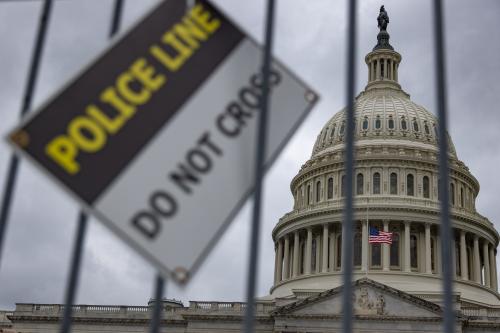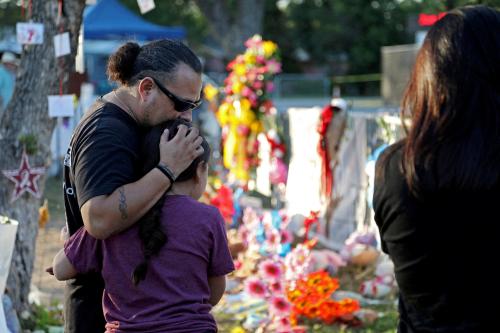Africa is seldom a central feature of American presidential campaigns. In an interview with the Des Moines Register on December 9, Mitt Romney briefly brought Africa into the conversation. Explaining what he would do differently than President Barack Obama to counter the threat of radical Islam, Mr. Romney first stated that he would have taken much more vigorous action to dissuade Iran from its “nuclear folly,” but then segued into what the United States should do to prevent radical jihadists from expanding in countries such as Nigeria. His proposal, which he claimed reflected a policy of former President Reagan, would provide special partnership forces of military and intelligence personnel to help local armed forces “root out jihadists,” thereby avoiding the need for “kinetic military power” in the future.
Mr. Romney pointed to the success of this strategy in reducing such threats in the Philippines; and he supported the dispatch by the Obama administration of such a contingent to hunt down Joseph Kony, leader of the terrorist Lord Resistance Army, in Central Africa. What can be said in response to these remarks? First, the partnering of small units of military and intelligence advisers with the military forces of other countries is certainly a more widespread practice than Mr. Romney indicates. Second, there is no reason to assume that such efforts are not underway in Nigeria already, as they are in countries to the west of Nigeria where al Qaeda in the Islamic Maghreb (AQIM) is active. Third, describing what is happening in northern Nigeria as a case of radical jihadists seeking to expand to other parts of the country, casts anti-jihadism in the same mode of Cold War discourse on stopping communist infiltrators.
Mr. Romney must be given credit for bringing sub-Saharan Africa fleetingly into the picture. There is little prospect, however, that contenders for the Republican nomination will provide more than sound-bites to show their resolve in defending American national security in Africa. At some point in the run-up to the November 2012 elections, a mature conversation should take place about the complex political and economic challenges in Africa today. Such a review should include the need for multifaceted responses to counter the despair and radicalization, especially of young people, in diverse country contexts.
One of my Nigerian colleagues who teaches Islam begins his introductory course by telling American students: “We will study what Muslims do when they are not blowing up things.” Advisers to U.S. presidential candidates should prepare briefing papers on why a shadowy group in northern Nigeria is now blowing up cars, buildings, police stations, and themselves. While small partnership forces can help hunt its militants down, corrupt governance, dismal education, joblessness, and grinding poverty will ensure they persist. Eventually, we may arrive at policies that can stop individuals bent on acts of terrorism while also helping reverse conditions that led to their loss of hope for salutary change in this world. Nigeria, with a democratic, if flawed, federal system, ample national resources, and a Muslim population that is overwhelmingly “non-jihadist”, is an appropriate place for American and other partnership forces to engage in enhanced governance and development cooperation alongside focused counter-insurgency assistance.
The Brookings Institution is committed to quality, independence, and impact.
We are supported by a diverse array of funders. In line with our values and policies, each Brookings publication represents the sole views of its author(s).



Commentary
Op-edExamining Mitt Romney’s Approach to Preventing Jihadism in Africa
December 14, 2011